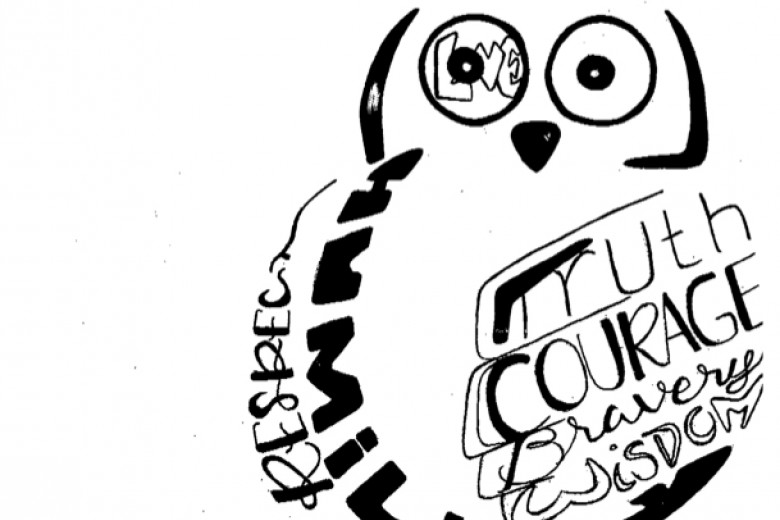Can I envision a life without prisons?
Yes, I can envision a life without physical prisons as they are absolutely no use in making a person change their behaviour. It is only absolutely Godly love that does that – along with employing people in society with compassion. Prisons, instead, are just slave camps all over again.
Slavery has never ended in this country. The physical beatings, chains, and shackles have been replaced with psychological bondage. Plantations have been replaced with prisons. It’s about money. It’s always been about herding, investing in, and marketing the chattel for a profit. It’s bodies in a warehouse. Inmates as inventory. The operators of private prisons, like CoreCivic and GEO Group, are listed on the stock exchange. The courts are players in this marketing of prisoners/slaves.
Between 2000 and 2019, the number of people in private prisons in Ohio has increased by 253 per cent.
Ohio – where I am incarcerated – relies heavily on for-profit prisons, and it would severely impact the state economy if prison populations were reduced, or if prisons were abolished. Between 2000 and 2019, the number of people in private prisons in Ohio has increased by 253 per cent. Ohio has numerous law colleges – including Case Western Reserve University, Ohio State University, University of Toledo, University of Akron, and University of Dayton – and, as far as I know, none of these institutions will accept any criminal prisoner cases for review. Yes, the University of Cincinnati has the Innocence Project, where lawyers and others work to free wrongfully convicted prisoners, but they largely take cases where DNA evidence will exonerate the prisoner.
Yes, I can envision a life without physical prisons, but prison isn't just a building in which to enslave "lawbreakers.” There is a mental aspect of it. One can be mentally restrained from being able to think rationally in this society. When we look at one who is sentenced for a crime, their thought patterns are a result of structured racism, poverty, and stereotypes. The fact is that they have already been imprisoned by the effects of that systematic agenda. Then, when they are put into a more controlled, confined environment – a courtroom of lawyers who work for U.S. Inc. and aim for capitalist gain off the backs of chattel – it is even more damaging. In U.S. courtrooms criminal defendants are under the assumption that the attorneys are always there for their best interests – so they allow these attorneys to speak for them instead of speaking for themselves.
Mental resistance, as I have witnessed, will not be achieved in prison because of the distractions that are put in place to make inmates here more comfortable, while at the same time they are denied access to the things they need to pursue their rights. We have food fundraisers, commissary, media players, music, cable TV, movies – but these things are pacifiers. I hear guys say, “This is a violation of my rights,” but they won't file a complaint, and then they say, "F*** it, they gonna do what they wanna anyway," or “They ain't shaking me down." A pacifier makes the baby settle down, so they have no ambition to stand up.
You address those issues by examining what each person has been through and getting them treatment – not through isolation, not by building plantations all over again.
Mental imprisonment can be resisted by seeking redress for grievances, but I tell you, from someone who has fought the prison system (and has over 24 years’ experience in prison) the slave syndrome would have Harriet Tubman, W.E.B. Du Bois, and Nat Turner rolling in their graves. There is no "fight" here in Ohio's penal colonies. You try to raise an issue on behalf of others and they will lock you up, destroy your property, deny you parole, or transfer you without notice as retaliation. So people inside just gripe, stay misinformed, and accept the psychological whippings of the slave master.
Some may ask me, “Well how have you beat the odds, and resisted the pacification?” I respond that I have studied the materials that were put out by the media and government, and read what’s been published by people who have inside info – like Chelsea Manning, Edward Snowden, and Jim Marrs. I use the grievances and complaints processes that are afforded to prisoners.
Even so, there is a system set up by the penal administration to rubber stamp prisoners’ complaints. For instance, in Ohio we have institutional inspectors in the prison who are assigned to address inmate grievances after they are raised in an informal complaint process. These inspectors are supposed to be independent and unbiased – and let me personally tell you that they are not. From what I’ve seen, these inspectors eat lunch, make rounds, sit in department head meetings, and rubber stamp any and all issues against the inmate, with the vast majority of grievances being denied without proper investigation. The slave mentality is facilitated by the prison administration – the overseers.
It’s bodies in a warehouse. Inmates as inventory. The operators of private prisons, like CoreCivic and GEO Group, are listed on the stock exchange.
This mindset can only be abolished by awakening the minds of the people. There is a saying: "If you don't stand for something, you'll fall for anything.” To address the mental aspect of imprisonment would require a non-partisan think tank or group of organizers to find a way to get inside the penal plantations/colonies (prisons) and observe what day-to-day life is like, instead of relying on the reports of mainstream media. These organizers should also set up interviews with those like myself. Experience is the best teacher – though when a door is revolving, as it is with systemic poverty, the teacher’s efforts are fruitless.
When you have a system that creates laws (not statutes) to bind and control citizens for its own profit, then says, “Hey you owe this ‘debt to society,’” and then when you can't discharge the debt, puts an stock/inventory number on you (prison ID #) and throws you in a controlled environment and makes you work for no more than $24 a month (not even minimum wage!) – what else can it be called other than involuntary servitude, the exact thing that Abraham Lincoln supposedly abolished?
So, when you build these warehouses/plantation colonies and say, “This will teach them to be a better citizen, to reform their criminal thinking,” it is a fraud. I doubt any psychologist or psychiatrist will say that isolating a person from society for long periods of time will help them change their thinking. What about those with intellectual or developmental disabilities? Prisoners suffer after one or 30 years away from society. Juveniles being locked up and sent to adult prisons solves nothing. Drug addicts should never be sent away. You address those issues by examining what each person has been through and getting them treatment – not through isolation, not by building plantations all over again. True freedom means building facilities for treatment – not punishment.
The Social Manifest
Time’s a wastin’, I see signs and many faces
People dying every day, but babies are born taking
their places,
What's going on with this perverse generation, my
observations are real when many lives are being taken
Political agendas for mass incarceration;
Can a human life for crime be solved by the mental divide
or physical isolation?
Can cold hard bars remedy systematic poverty?
As far as the eye can see, all I see is a governmental colonization
of repeat slavery.
Take down chains, refrain from locked gates, visualize in a mindframe
let community love support marinate,
Because a chained mind only manifests terror, imprisonment
further continues the crime,
Let true emancipation be manifest by confined decolonization,
For bonds of bondage? The fight is in the struggle, not chain gangs
breakin’ rocks for governors.
This article is part of Briarpatch's Prison Abolition Issue. Read other articles in the issue, and read more about the issue's creation and our fact-checking standards.






